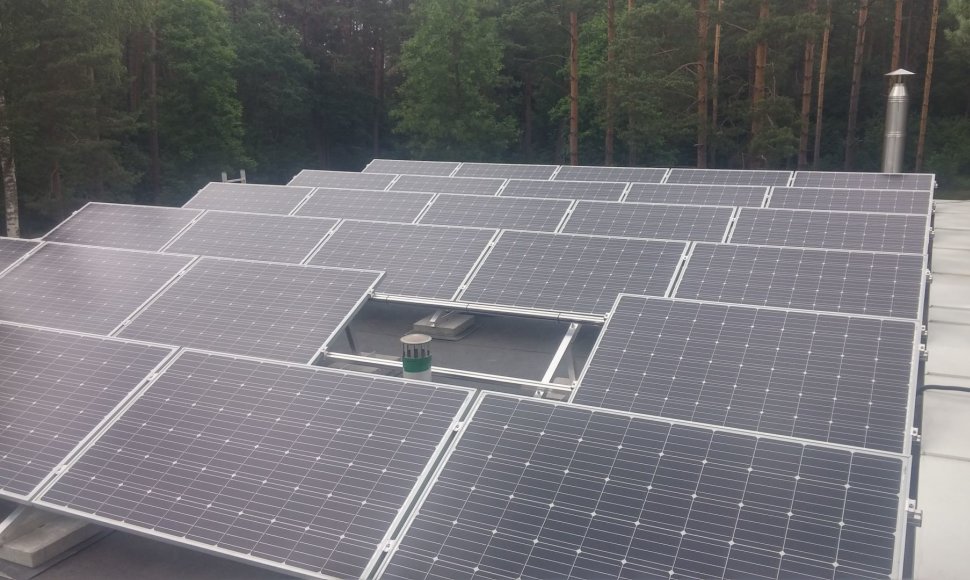With the recent announcement of reserved aid for installing solar power plants, citizens have flocked to find out how work proceeds under such conditions – power plants continue to be installed or do the work have to be halted? Solar power plant manufacturers and builders assure that citizens can continue requesting for them. Manufacturing and supply processes have not been disrupted, work continues, as usual, just all necessary security measures have been put in place.
“Our work continues almost as usual. Office staff, who are responsible for projects, work from home and responsibly coordinate all proceedings. All the details are arranged with our clients solely through email and video or phone calls. There is no unnecessary direct contact. Contracts are fulfilled in succession, by their deadlines, often even sooner. We are equipped with protective equipment,” Lithuanian solar module manufacturer Solet Technics head Andrius Karazinas spoke on today’s conditions.
According to him, objects are serviced by brigades of two. These staff members do not have any close contact with the client. Prior to arriving at the clients’ premises, necessary protective equipment is equipped: facial protection (respirators, face shields), single-use gloves and disinfectant liquid. Prior to the beginning and when ending work, all intensively used surfaces (door handles, tools and others), which are touched during work, are disinfected. Upon returning from a visit, the vehicles used, hands and shoes are sprayed with disinfectant.
The supply of constructions and converters from suppliers in Europe have, according to A. Karazinas, not been disrupted: “All production arrives on time. As we manufacture the modules locally – we have no problems at all.”
Objects are evaluated remotely
The head of Solet Technics shared the company’s experience in how in order to achieve as little direct contact with customers as possible, they already reorganised their work in the first days of quarantine.
“First of all, the client, with our help, fills in a brief questionnaire, we explain by phone, what information they should present, at what angle to photo their roof. We evaluate the object remotely (with the help of satellite images) and form relevant questions for the client. With some customers, for whom visual contact is important, we organise video calls, where we offer wider consultations. If necessary, we display the methods of how the electrical plant will be installed on the roof, answer questions of interest,” A. Karazinas says.
According to him, while the situation is complicated, all opportunities are offered for people not to have to change their plans and smoothly form contracting agreements to install solar power plants.
Grants will not be delayed, next call of support – earlier
Citizens, who have received reports about reserved funds, must have their solar power plants installed and must submit expense compensation requests by October 31 this year. It is important not to forget that the Environmental Projects Management Agency (APVA) will only issue the compensation following factually experienced expenses. This means that the individual must first face expenses, pay the supplier, obtain the necessary documents and only then request payment of compensation.
APVA has announced that the circumstances regarding the coronavirus will not have any impact on the payment of compensations.
The minister of energy has already announced that next year, next year’s call to seek support for the installation of solar power plants will be made earlier. According to him, it will not be necessary to await next year and already this summer and autumn, there will be new support opportunities announced for citizens to install electrical plants at home and remote power plants.












